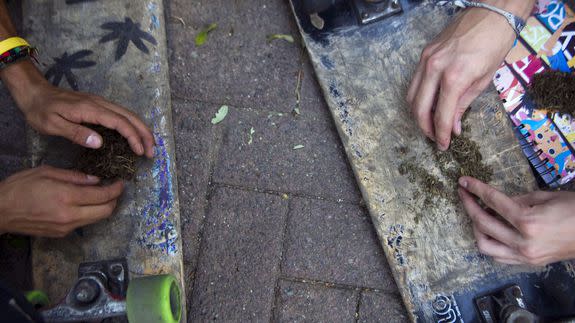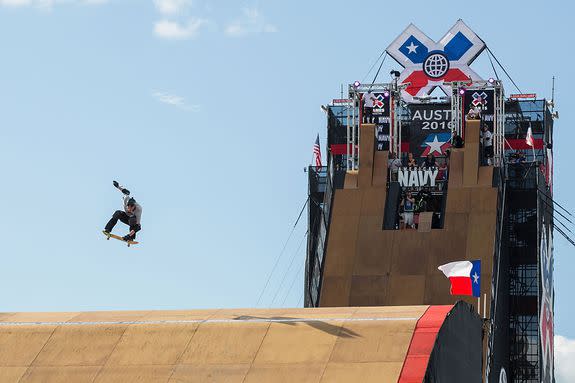Skateboarding at the 2020 Olympics may have one big problem: Weed

Getting blazed and athletic prowess may seem like an unlikely combination, except in the world of competitive skateboarding.
Skateboarding is one of five new sports set to make their debut at the Tokyo Olympics in 2020, but the International Olympic Committee (IOC) — like your uncle who wants to get down with the youth — may not be ready for the anti-establishment nature of skate culture.
SEE ALSO: Here's why Olympic medalists don't get flowers at the Summer Games in Rio
Australia's Tas Pappas, one of the world's top skateboarders in the '90s, has suggested the use of marijuana in skateboarding might dissuade athletes from wanting to compete at the Olympics.
"I'm wondering how it's going to work as far as the drug testing is concerned, because some guys skate really well on weed and if they have to stop smoking for one competition (the Olympics) it might really affect their performance," Pappas told ABC News.

Image: Rick Kern/WireImage
It's no secret weed and professional sport haven't been the best of friends. Since the World Anti-Doping Agency's (WADA) inception in 1999, cannabinoids have been on the organisation's annual list of in-competition prohibited substances.
Australian sporting codes tried to lobby WADA to remove the cannabinoid prohibition in 2012, suggesting the drug wasn't performance enhancing. In response, WADA raised the cannabinoid threshold to 150 nanograms per millilitre in 2013, 10 times its previous limit.
While the relaxed measure reflects changing attitudes to marijuana globally, the current situation means if Olympic skateboarders get caught with a cannabinoid concentration above WADA's threshold, they could be stripped of medals or banned from competition.
Take Canadian snowboarder Ross Rebagliati, who was nearly stripped of his gold medal at the Nagano Winter Olympics in 1998 after testing positive to the drug in a much-publicised incident. Rebagliati now has his own cannabis brand, Ross' Gold.
For skateboarders who allegedly perform better on weed, they will have to stop using it for weeks before Olympic competition.
Compare that to ESPN's X Games, one of the biggest stages for top skateboarders, which doesn't drug test its competitors. That's something that was labelled "surprising and regrettable" by WADA's chief David Howman in February.
But perhaps many of the world's top skateboarders won't bother coming to the Olympics, anyway.
"As far as the skate community is concerned, for a lot of people it will seem cheesy. This country verses [sic] that country is not the unified skate culture," Pappas told ABC News.
"When you meet a bunch of skaters you don't feel like it's us versus [sic] them, it's just a bunch of guys getting together and want to have a skate."
From embracing weed culture to the rejection of parochialism, skateboarding could be just too woke for the centuries-old Olympic movement.
